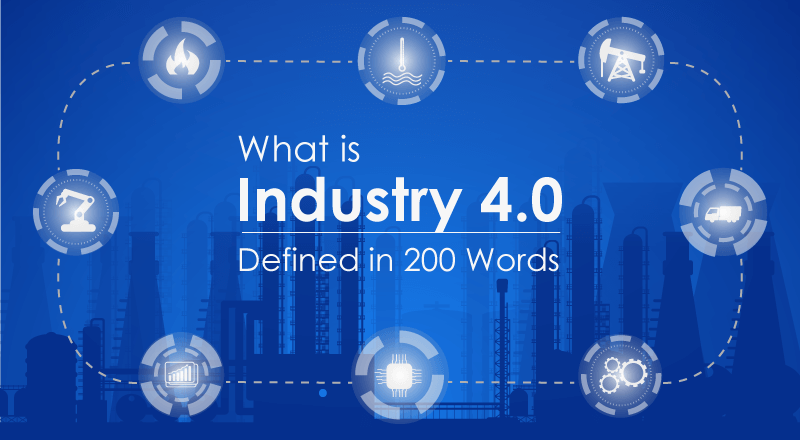

February 14, 2020
June 29th, 2023
Industry 4.0/ I4.0 / I4 is an initiative introduced by the German Government to promote smart manufacturing with the potentials of new technologies.
It connects physical machines with the digital system enabling collaboration across departments, products, and people.
This fourth industrial revolution focuses on interconnectivity, automation, machine learning and real-time data.
It not only makes the system interconnected, but communicates, gathers, and analyzes data across machines enabling efficient processes at reduced costs.
What factors drive Industry 4.0?

Machines are augmented with wireless connectivity and sensors which track the entire unit and make the decisions based on the data.
Technologies like Cyber-Physical Systems, IoT, Cloud Computing, and Cognitive Computing are used to create a holistic and connected ecosystem.
With the help of industry 4.0, business owners can control the business process, boost productivity, and drive growth.
Benefits:
Challenges:
Companies like General Electric, Cognex, Microsoft, GE, PTC, and Siemens are executing Industry 4.0 to leverage their business.
SPEC INDIA is your trusted partner for AI-driven software solutions, with proven expertise in digital transformation and innovative technology services. We deliver secure, reliable, and high-quality IT solutions to clients worldwide. As an ISO/IEC 27001:2022 certified company, we follow the highest standards for data security and quality. Our team applies proven project management methods, flexible engagement models, and modern infrastructure to deliver outstanding results. With skilled professionals and years of experience, we turn ideas into impactful solutions that drive business growth.
SPEC House, Parth Complex, Near Swastik Cross Roads, Navarangpura, Ahmedabad 380009, INDIA.

This website uses cookies to ensure you get the best experience on our website. Read Spec India’s Privacy Policy